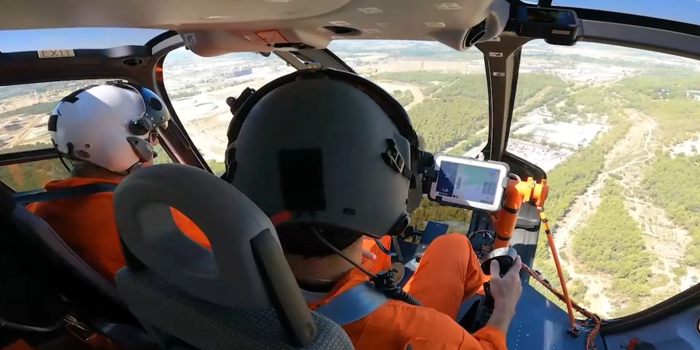Airbus Helicopters has achieved a significant breakthrough with its innovative FlightLab flying laboratory, demonstrating the potential for simplified flight controls in urban air mobility.
The dream of seeing helicopters parked in suburban driveways alongside cars may have seemed far-fetched to many. However, Airbus Helicopters is trying to bridge this gap by simplifying the complex controls that have traditionally burdened helicopter pilots. The FlightLab flying laboratory has successfully tested a revolutionary fly-by-wire system designed for Airbus’ CityAirbus NextGen eVTOL prototype. This system streamlines the primary flight controls into a single joystick, eliminating the need for three hands to operate the intricate controls found in traditional helicopters.
In a world where helicopter controls typically consist of Cyclic Control, Collective Control, and Foot Pedals, not to mention the throttle, simplification was long overdue. The Cyclic Control, resembling a joystick, governs the pitch of the main rotors and the direction of movement, while the Collective Control adjusts blade pitch for lift control, and the Foot Pedals regulate the tail rotor for directional control. Adding a throttle on the Collective Control further complicates the already demanding task of piloting a helicopter.

Airbus’s innovative approach relies on cutting-edge fly-by-wire technology and computer assistance to consolidate all these functions into a single joystick. This joystick now empowers pilots to execute a wide range of maneuvers, from take-off and landing to climbing, descent, acceleration, deceleration, turning, and approach. This breakthrough simplifies the art of flying helicopters and finds application in the emerging eVTOL industry, making it more accessible to pilots and passengers alike.
Tomasz Krysinski, Head of Research & Innovation at Airbus Helicopters, emphasized the significance of this advancement, stating, “From the start, we designed this system considering every certification parameter in mind as it will be a big step forward in validating the design of our urban air mobility eVTOL, CityAirbus NextGen.”

He further highlighted the advantages of this electric flight control system, particularly in reducing pilot workload and enhancing mission safety. This innovative technology is a testament to Airbus’s commitment to advancing the future of vertical flight, using demonstrator projects like FlightLab to pave the way for the next generation of urban air mobility.
In essence, this pioneering development sets the stage for a future where the skies are populated with user-friendly, electric flying vehicles, bridging the gap between imagination and reality in aviation.
Source: Airbus Helicopters


